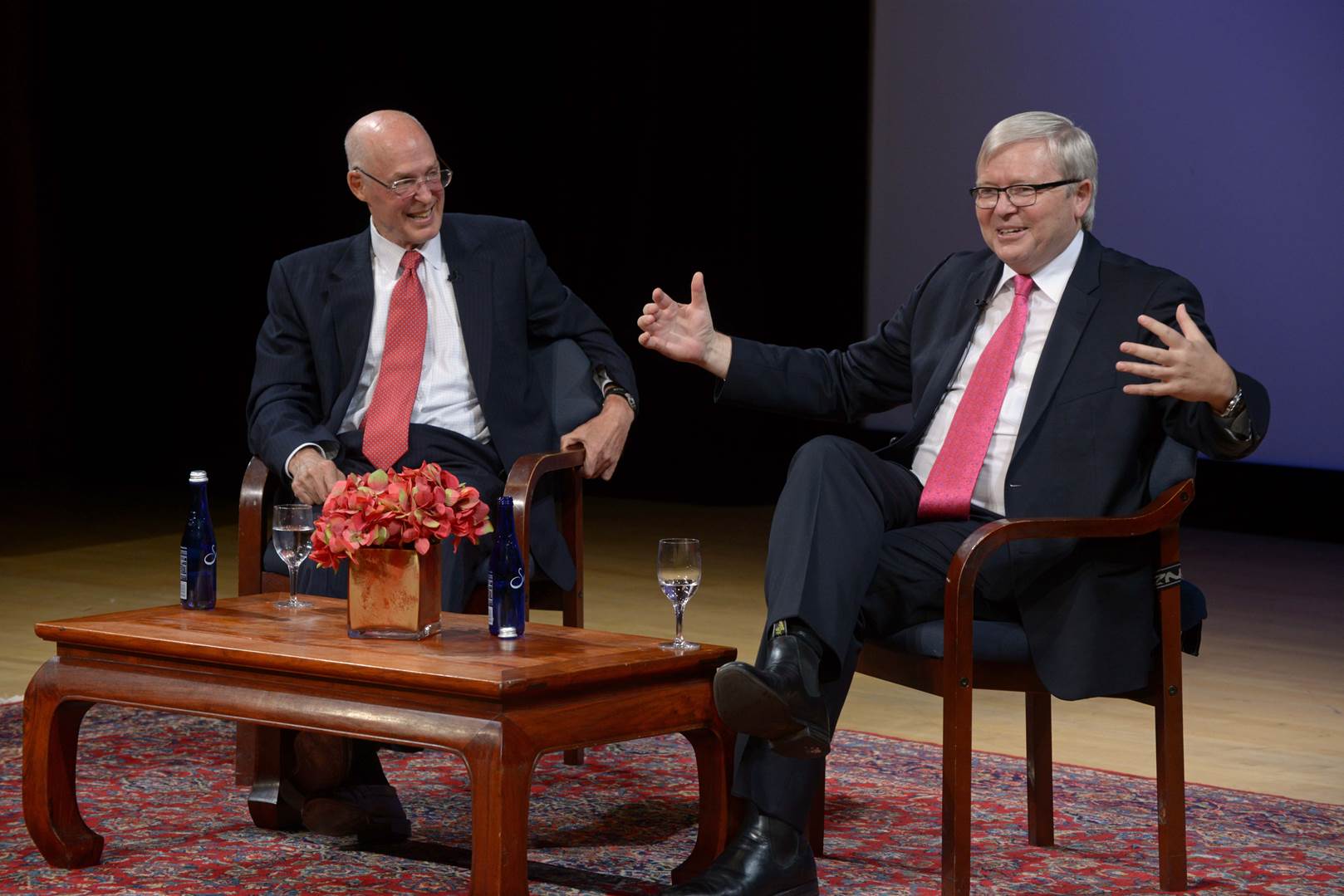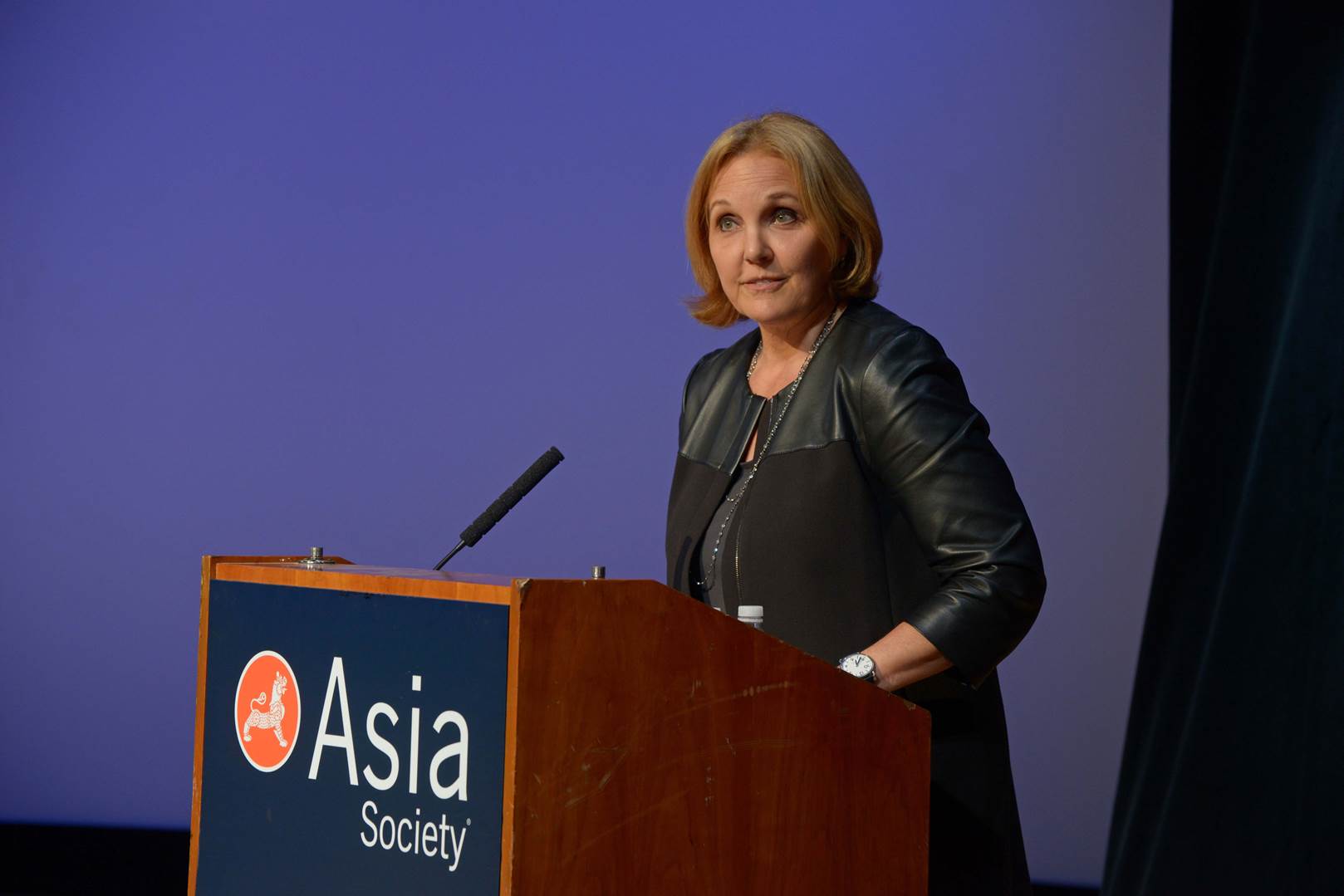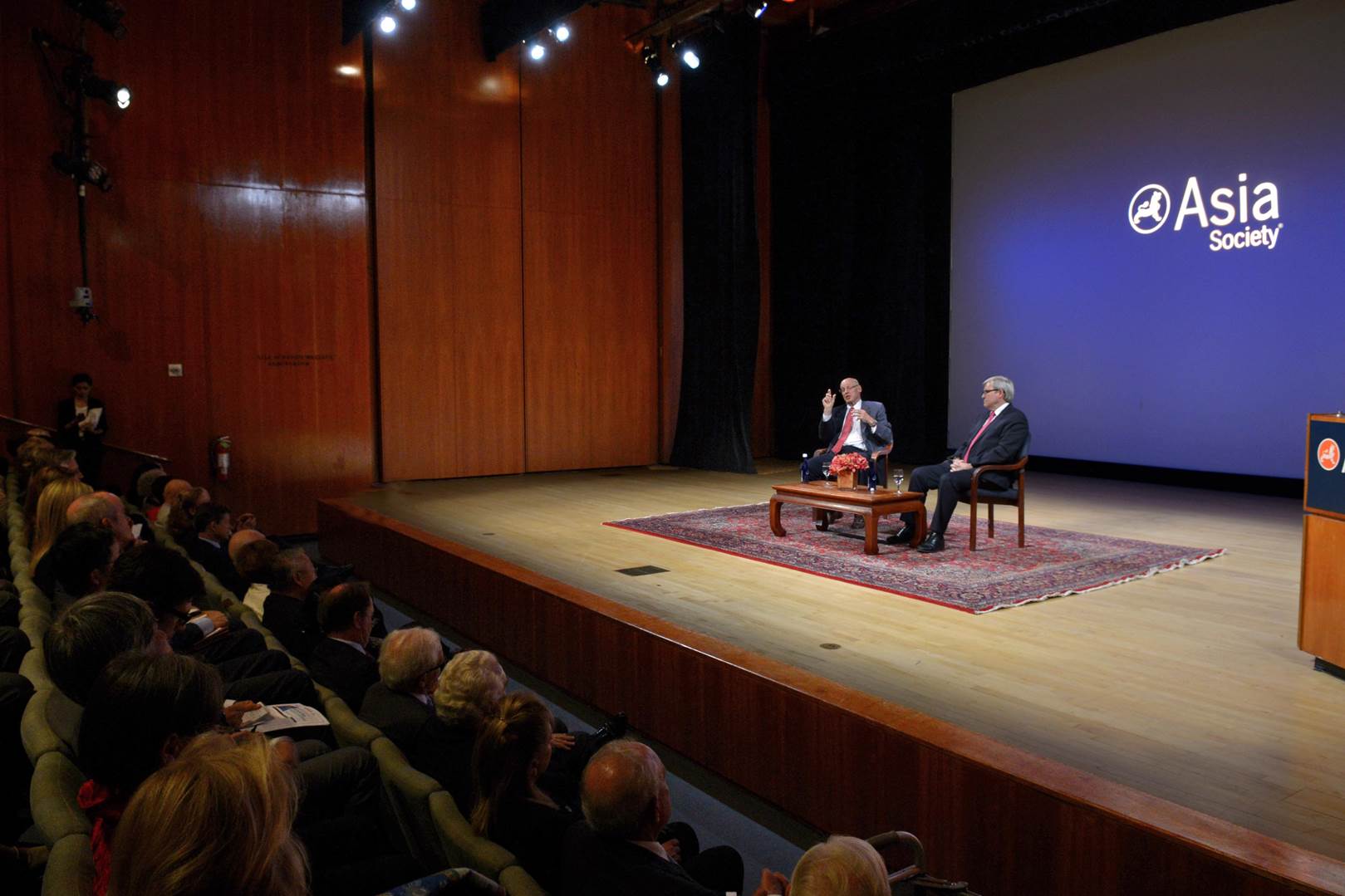On September 11, 2014, Paulson Institute Chairman Hank Paulson and former Australian Prime Minister Kevin Rudd held a dynamic, onstage conversation about the rise of China within the international system. At the event, held at the Asia Society in New York, Paulson announced that Rudd has joined the Institute as its first Distinguished Fellow.
As a Distinguished Fellow, Rudd, who has deep expertise in China and delivered his first speech there as prime minister in perfect Mandarin Chinese, will be closely affiliated with the Institute’s Think Tank, working to advance global engagement with China on economic and environmental issues.
On stage before a packed audience, Paulson and Rudd, who worked together during the 2008 global financial crisis, spoke about their extensive experience with China and President Xi Jinping. “There has not been such a strong Chinese leader since Deng Xiaoping,” who launched China’s reforms and opening to the outside world in 1978, Rudd said. He elaborated that Xi’s reform plans and his anti-corruption campaign potentially will help China move to a middle-income level of development.
Turning to the economy, Paulson remarked on the enormity of Xi’s ambitious plan to move China’s $10 trillion economy away from export-led rapid growth to more domestically driven, sustainable economic development: “Xi has launched incredibly bold reforms, dealing with everything from social issues like normalization of the labor market and the environment, to the very most important economic issues, like fixing the municipal finance system, building a modern finance system and reform of the state owned enterprises. That’s the good news,” Paulson said. “The bad news is that it’s extremely difficult to get it done, given the scope, the scale and the vested interests.”
“The test I am going to look at is competition, which is the key,” Paulson added. “They’ve got to open up major sectors, like energy and telecoms, to market forces and the private sector. They’ve got to put the SOEs on a level playing field and open up to more foreign competition.”
Both Paulson and Rudd stressed the importance of pushing for a Bilateral Investment Treaty between the United States and China. “We need to thicken our economic relations. Direct investment will create jobs. This will be good for both of our countries,” Paulson said. “BIT negotiations can be leverage to help true reforms to speed up in China, by exposing the economy to real competition.”
Rudd turned the conversation to environmental policy, an area where he has been working for many years. As Prime Minister from 2007 to 2010, and again in 2013 (he lost the recent election: “I came in second”), Rudd put in place a carbon tax and a bold cap and trade system for controlling carbon emissions—policies that have since been dismantled. Rudd noted that the Chinese government has shifted its views on climate change dramatically in the last five years. Back at the 2009 Copenhagen climate talks, when then premier Wen Jiabao did not attend the negotiations as a sign of passive protest, China saw climate change as a global problem. “Historically they legitimately felt it was the fault of the West and that the West should go fix it,” Rudd said.
Now, he said, in response to an air pollution crisis that has erupted in Chinese cities, the Chinese leadership has made environmental policy a top priority. “The pendulum has swung 180 degrees. Chinese citizens are angry as hell about pollution, and in China there is a much deeper consensus that the Chinese must act globally if they want to achieve the rejuvenation of the Chinese state and be accepted as a great power in the councils of the world, while delivering opportunities for a good life to individual citizens.”
Rudd applauded the Chinese government for pushing forward with environmental policies that go beyond efforts of the United States, such as a pilot project in six Chinese regions that have imposed quotas for carbon emissions and started trading carbon. “I find it remarkable that China, I think it’s about two weeks ago, announces that it’s now moving towards … a national cap and trade system when countries like the United States are not (and) countries like my country, Australia, are moving away from carbon pricing,” Rudd said. “So tick to the Chinese for getting the direction right, there’s a lot more work to be done yet.”
Paulson pointed to the Institute’s new Climate Change and Air Quality Program, which will bring together international and Chinese experts in Beijing in late September to discuss ways to help China implement its environmental cleanup plans. Through research, concrete projects and advocacy, the Climate Change program will be looking for practical solutions for China’s crisis. “A lot can be done in the areas of energy efficiencies and building codes” that will impose stringent environmental standards on buildings, Paulson said.
Rudd also shared his appreciation for the Distinguished Fellowship position, citing his eagerness to marry his deep knowledge of China to the Paulson Institute’s effort to fashion practical and enduring solutions to economic and environmental challenges facing China and the world. “Rudd’s willingness to combine thought and action made him a great world leader (during the financial crisis) and will be crucial to the future success of the Institute,” said Paulson.
Watch the whole conversation here:






